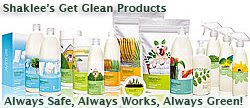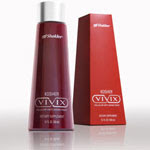Plastic is a product that has helped our lives in positive ways.
 Plastics are in our medical environments, our cars, homes, offices, printers, phones, cell phones, computers, credit cards, airplanes and more. Without plastic, so many of our common everyday experiences would not be possible.
Plastics are in our medical environments, our cars, homes, offices, printers, phones, cell phones, computers, credit cards, airplanes and more. Without plastic, so many of our common everyday experiences would not be possible.However, plastic also has some qualities that makes it unfit for human consumption! Research is showing that we ingest parts of the plastics when we re-heat and reuse plastic containers. While some are ok, some are not. But how can we tell? There are labels on the bottom of containers that will tell you what the code is for this product and then you have to translate. Turn over the container, look at the number on the bottom and then you will know whether to keep that container in the kitchen or in the workshop. Most Tupperware is made of plastics that are safe to reuse and store food according to a recent article in Popular Science.
Here is the list of current options:
#1 Polyethyelene terephthalate (PETE) #2 High-density polyethylene (HDPE) #3 Vinyl, polyvinyl chloride (PVC) #4 Low -density polyethylene (LDPE) #5 Polypropylene (PP) #6 Polystyrene (PS) #7 Other (includes polycarbonate, acrylic, polylactic acid, fiberglass) Use these to help you know which are easy to recycle and which are here forever!
Avoid the #3 and #7 plastics since they are just bad for you! #3 is PVC and shows up in some plastic wraps since it helps improve the function of the warp. PVCs have the potential to cause cancer and other health problems according to researchers.
#7 plastics contain polycarbonate and those contain bisphenol A (BPA). There have been many reports on BPA in water bottles and baby bottles. This plastic compound has hormone leaching properties that can cause problems such as early puberty in young girls. (Laurine Brown Ph.D. in nutrition from Tufts University)
How to stay safe:
*Use waxed paper or butcher paper to wrap foods. *Bring out the glass and ceramic containers for storage. *Keep Plastic wrap from touching hot food since the plastic can migrate into the food and then into us! *Don’t microwave plastics. Even though they say “microwave safe” that only means that the container will not melt or warp when heated. It can possibly still leach into the food & then us!
So appreciate plastic for making our lives easier and lighter! But avoid eating it and leaving it in our landfills for eternity! Think and read the #'s.










3 comments:
Great information. Thanks for sharing.
Remember Earth Day April 22!!
Yes Elise, plastic is was a wonderful invention, but oh, what a detriment to our health and the planets. Here's a great slideshow about the dangers of plastic bags:
http://www.poconorecord.com/apps/pbcs.dll/article?AID=/20080506/MULTIMEDIA02/80505016
Plastics hopefully will be a thing of the past. I am switching as much as I can to glass. Much better for the planet. Thanks for sharing this info.
Post a Comment